"If you want to be a writer, you must do two things above all others: read a lot and write a lot."
We cite these words of Stephen King so often (and we aren’t alone) because they reflect the essence of writing craft: Writers can’t succeed if they don’t read, and books for writers are so many because authors understand their role in improving writing skills.
The problem:
Such books for writers are numerous. It may take years to find and read those truly practical, inspiring, and helpful. We’ve done the job for you:
For this post, we’ve asked our writers for recommendations and gathered the 15 best books for writers. Whether you’re a newbie or a professional author, you’ll find them indispensable to check.
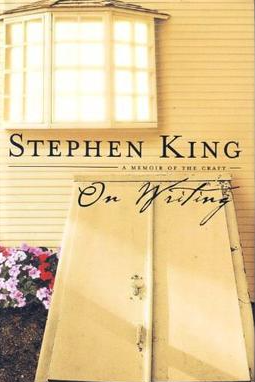
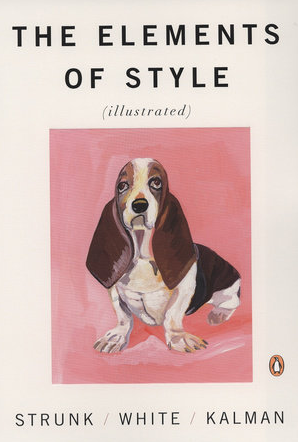
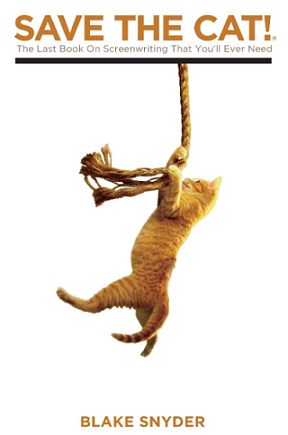
1 – On Writing by Stephen King
"The scariest moment is always just before you start."
No doubt that you’ve heard of this one! It’s the most-cited book on writing craft from America’s bestselling author of 50+ novels, dozens of short stories, and hundreds of essays. Stephen King tells about his childhood and youth influencing his writing nature and style, shares tips on using emotions when creating characters and plots, and reveals practical advice on story structures, words to use, and writing space organization.
2 – The Elements of Style by Strunk, White, and Kalman
"When a sentence is made stronger, it usually becomes shorter. Thus, brevity is a by-product of vigor."
This book is a must-read for everyone working with web content, where every word counts to engage users. Authors reveal the basic principles of styles influencing the power of your written message: active voice, concise phrases, and plain yet descriptive English for online readers to keep investigating. Learn how to structure sentences and paragraphs with no unnecessary words! The book is the most-loved classic of all writers, with the fourth edition available in bookstores already.
3 – Save the Cat! by Blake Snyder
"Save the what? I call it the "Save the Cat" scene. They don't put it into movies anymore. And it's basic. It's the scene where we meet the hero and the hero does something — like saving a cat — that defines who he is and makes us, the audience, like him."
It’s the most influential book about screenwriting, revealing the principles of creating an engaging story that will hold the audience till the end. Even if you don’t write scripts, the book is interesting to check to understand the storytelling principles, the hero’s journey, and the secrets behind our favorite movies’ creation. The author uses scenes from blockbusters like Terminator, Mission: Impossible, Star Wars, and others as examples.
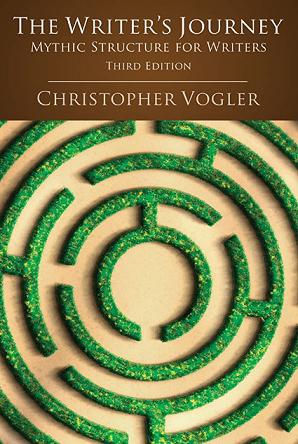

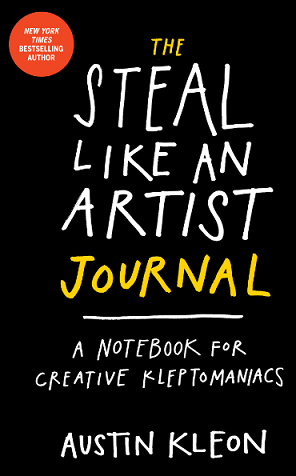
4 – The Writer’s Journey by Christopher Vogler
"An effective story grabs your gut, tightens your throat, makes your heart race and your lungs pump, brings tears to your eyes or an explosion of laughter to your lips."
This book is a classic of writing advice. It reveals character archetypes and narrative structures authors apply to create a complete story. Vogler takes Joseph Campbell’s Hero of a Thousand Faces and explains how to use this principle for stories of different genres, not fiction novels only. You’ll learn a twelve-stage method of cinematic storytelling and get a comprehensive theory of character development.
5 – Story Genius by Lisa Cron
"We don't turn to stories to escape reality. We turn to stories to navigate reality."
Lisa Cron offers a more scientific approach to writing in this book. She tells how to use cognitive storytelling to influence a reader’s brain, explaining how the brain reacts toward certain types of stories and guiding how to craft those stories accordingly. You’ll get step-by-step instructions: from the idea and outlining to a complete draft. Story Genius is among those few books for writing that address the science behind the art.
6 – Steal Like An Artist by Austin Kleon
"What to copy is a little bit trickier. Don't just steal the style, steal the thinking behind the style. You don't want to look like your heroes, you want to see like your heroes."
Don’t let the book title confuse you: It has nothing to do with plagiarism. Instead, the author explains how different types of art interconnect and can serve as sources of inspiration for creative geniuses. Austin Kleon encourages us to be open to all sources and use them as a baseline but with new twists, thus crafting fresh and exciting writing works.
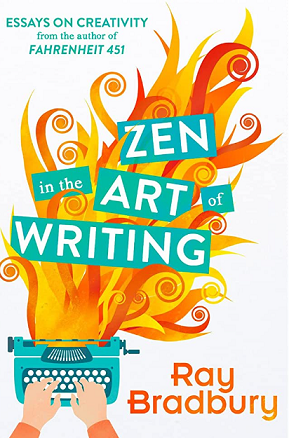
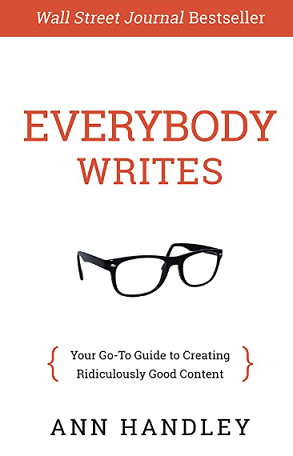
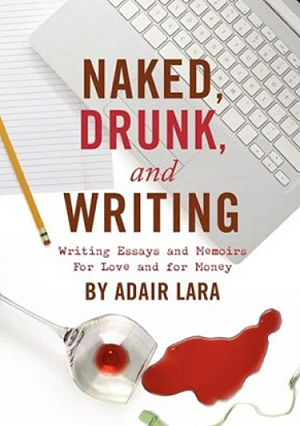
7 – Zen in the Art of Writing by Ray Bradbury
"That's the great secret of creativity. You treat ideas like cats: you make them follow you."
This book is a must to read even if you aren’t a big fan of Bradbury’s works. He’s among the most prolific writers, so his experience is worth investigating (at least). For the book, the author shares practical tips and tricks on story idea development, finding your writing voice and style, and celebrating the writing process itself. Don’t think of grammar or style while writing: Enjoy the process and let your idea follow you. Books on writing have never been so easy and inspiring to read!
8 – Everybody Writes by Ann Handley
"The truth is this: writing well is part habit, part knowledge of some fundamental rules, and part giving a damn."
Ann will teach you to plan and produce your stories. Her book isn’t only about inspiration and ideas but book marketing: Learn how to promote your stories and engage a broader audience. The book is about content creation for business, too. You’ll get the best practices for creating 17 specific kinds of content in marketing. Content tools are also here to ease your writing job and get the most out of it.
9 – Naked, Drunk, and Writing by Adair Lara
"Write it down. Whatever it is, write it down. Chip it into marble. Type it into Microsoft Word. Spell it out in seaweed on the shore. We are each of us an endangered species, delicate as unicorns."
Adair Lara is a columnist, award-winning author, and writing coach. In this memoir, she reveals the secrets of writing and editing different forms of autobiographies. The book is fun and sincere, mentioning some vulnerabilities of the author. It will come in handy for columnists and essayists: Detailed breakdowns of how to write and tons of ideas for crafting your next story are here to inspire you.
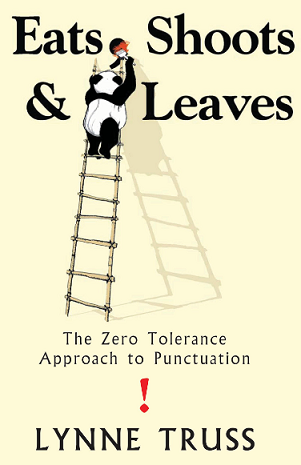
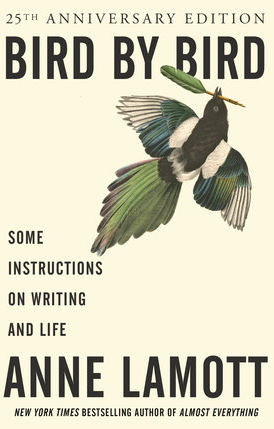
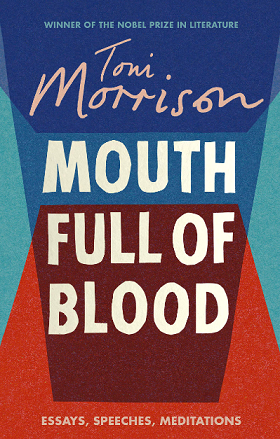
10 – Eats, Shoots, & Leaves: The Zero Tolerance Approach to Punctuation by Lynne Truss
"There are people who embrace the Oxford comma and those who don't, and I'll just say this: never get between these people when drink has been taken."
The list of books on writing wouldn’t be complete without a practical guide on punctuation. Written by a former editor who understands the role of proper punctuation in a story’s meaning and overall perception, the book shares a toolkit with examples from literature and neighborhood signs. You’ll see what disastrous consequences a wrong comma may bring and what the book title has to do with a panda.
11 – Bird by Bird by Anne Lamott
"Almost all good writing begins with terrible first efforts. You need to start somewhere."
The book comes from a nonfiction writer and contains the elements of a memoir with advice on writing craft. Anne Lamott encourages us to write even if the first drafts appear not that good, providing tactics on how to beat writer’s block. It’s a funny and witty book to read for inspiration, creative ideas, and becoming better writers than we are now.
12 – Mouth Full of Blood by Toni Morrison
"A writer's life and work are not a gift to mankind; they are its necessity."
Tony Morrison is one of the most influential voices in modern literature. This book is her collection of stories about how writing can influence the way the world will perceive you and the message you have for it. Revising her most famous works, Tony discusses the place of revisionist perspectives in the literary landscape.
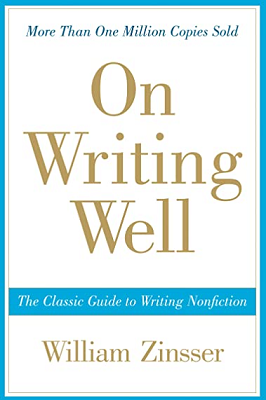
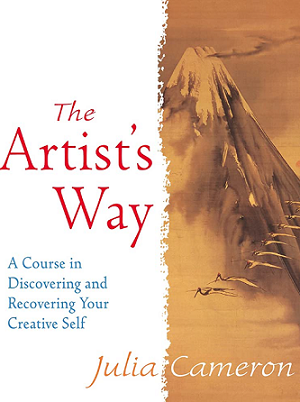
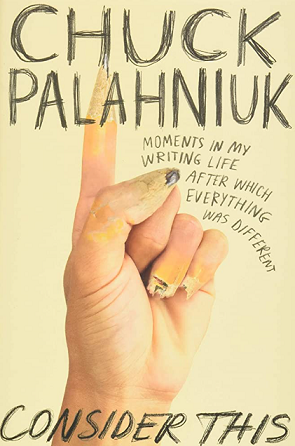
13 – On Writing Well by William Zinsser
"Writing is hard work. A clear sentence is no accident. Very few sentences come out right the first time or even the third time. Remember this in moments of despair. If you find that writing is hard, it's because it is hard."
You’ll find this work in most lists of the best books for writers. On Wiring Well is an evergreen resource on written communication, and it deserves the right to be a handbook of all nonfiction authors. Zinsser shares insights and tips on how to master concise writing, avoid common pitfalls, develop your writing voice, edit, and more. His guidelines will fit most writing genres, from interviews and columns to blog posts and sales copies.
14 – The Artist’s Way by Julia Cameron
"The trick is to metabolize pain as energy. Learn, when hit by loss, to ask the right question: 'What next?' instead of 'Why me?'"
Books for writing are different: Some share practical tips, while others serve as inspiration to overcome burnout or writer’s block. The Artist’s Way is your choice if you need valuable techniques for training your writing creativity. You’ll learn exercises like Morning Pages, The Artist’s Date, Creative Affirmations, and others to reveal new inspiration sources and gain self-confidence as a creative author.
15 – Consider This by Chuck Palahniuk
"Do not write to be liked. Write to be remembered."
Some would call Palahniuk a controversial writer, especially after reading his Guts. But his writing style and the techniques to grab a reader and hold their interest are worth investigating to understand his phenomenon. In Consider This, Chuck reflects on storytelling and shares thoughts on what makes a story so powerful. It’s a memoir-like read, full of anecdotes, personal stories, and examples of stellar storytelling for authors to consider.
Any of the above books for writers is worth your time. They come from writing gurus who know what they do and how to do that for us, readers, to crave more. So, if you haven’t checked them yet but are looking for practical and inspiring writing advice — save this list and start reading!
